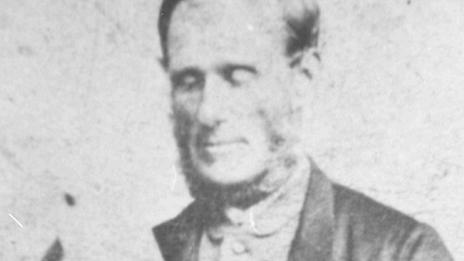Stranraer to Eyemouth cycling route honours Kirkpatrick Macmillan
- Published
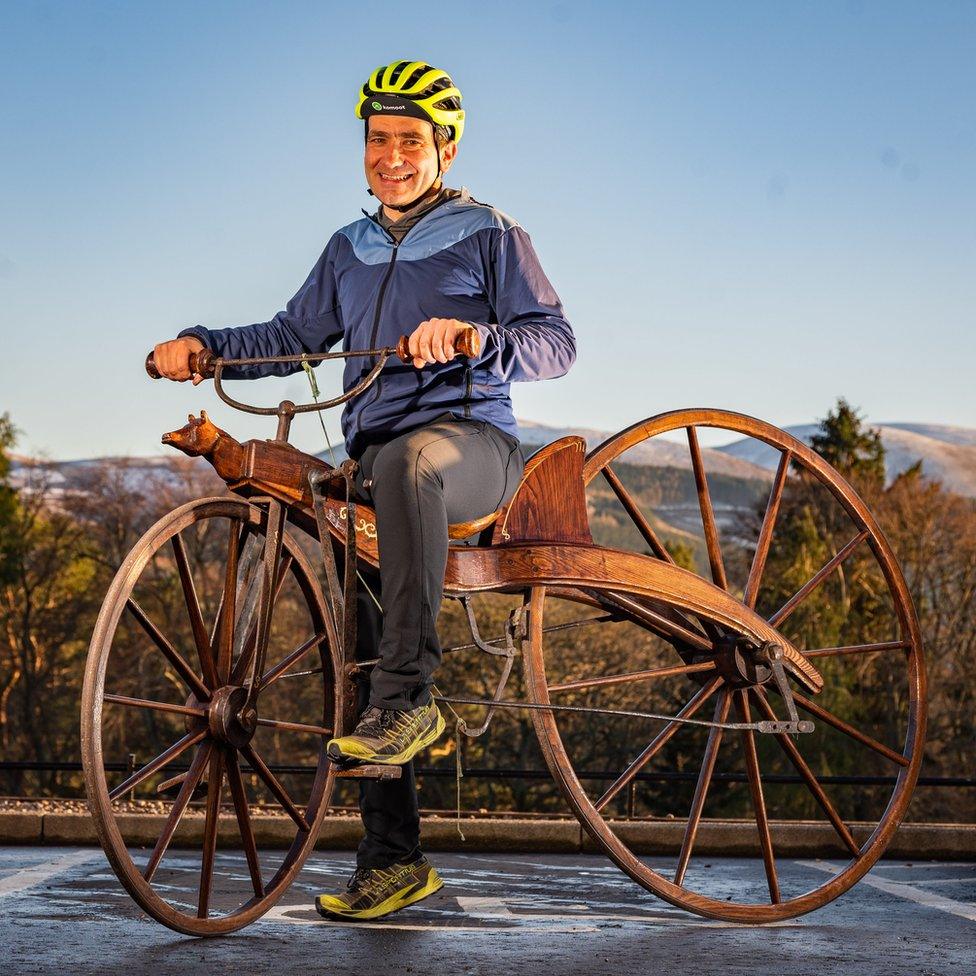
Bikepacking expert Markus Stitz tries out a replica of the "velocipede" invented by Kirkpatrick Macmillan
A new coast-to-coast cycling route across Scotland is to be named in honour of a bike-building pioneer.
Kirkpatrick Macmillan, born in Kier in Dumfries and Galloway in 1812, is widely credited as the inventor of the modern pedal-driven bicycle.
It is hoped the Stranraer to Eyemouth route will be ready in time for the UCI World Championships later this year.
Targeting experienced road cyclists, it aims to generate millions of pounds for the region's economy.
The official name for the route - Kirkpatrick C2C, South of Scotland's Coast to Coast - was revealed at a tourism conference organised by the South of Scotland Destination Alliance at Peebles Hydro.
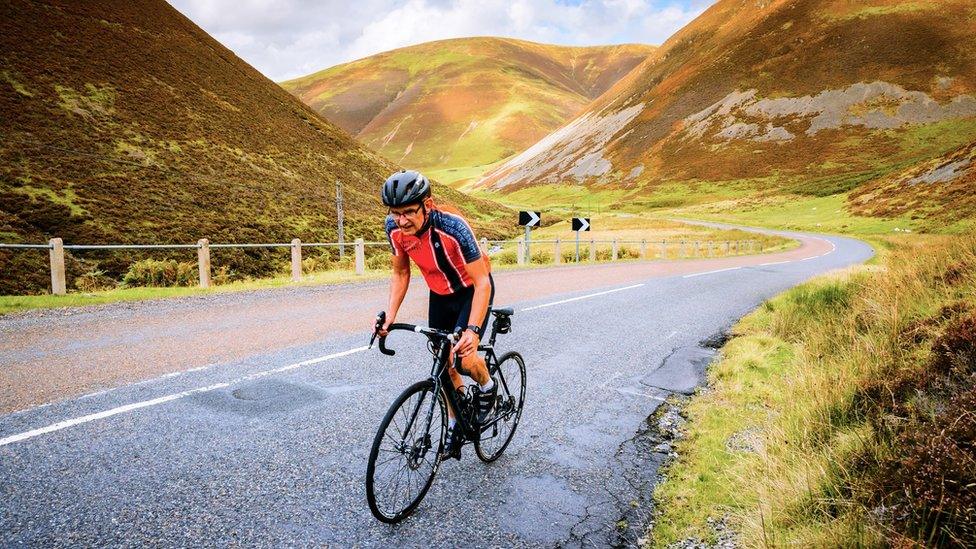
The route across southern Scotland is aimed at experienced cyclists
The organisation's chief executive, David Hope-Jones, said cycling was a "major growth area" for the whole of the country.
The Kirkpatrick C2C is hoped to prove a huge draw for the south of Scotland when it is formally launched in the early summer.
Initial projections forecast that it could attract up to 175,000 visitors to the region, with a direct spend of £13.7m per year.
Paula Ward, of South of Scotland Enterprise, said naming the route after him was a fitting tribute to a "very humble blacksmith" from Dumfries and Galloway and his "velocipede".
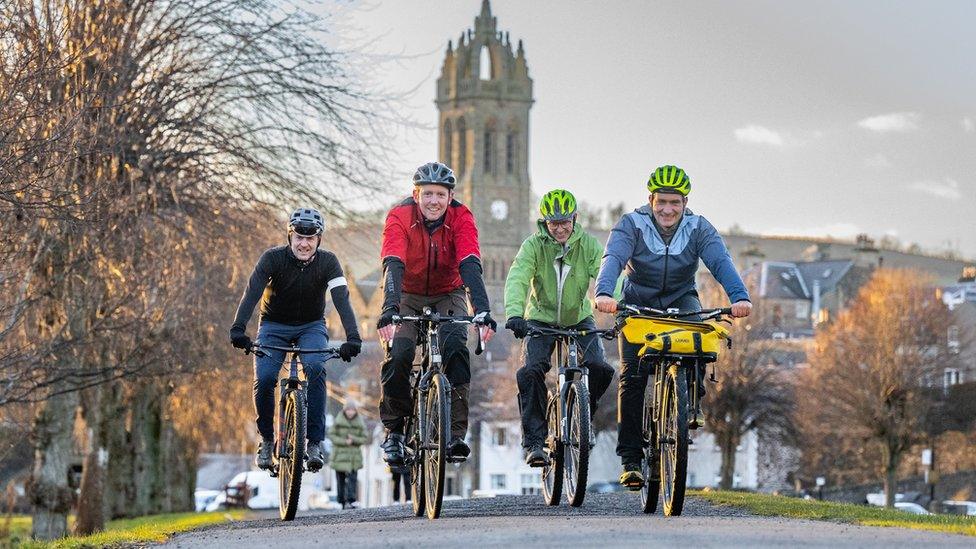
The new route runs from Stranraer to Eyemouth across the south of Scotland
"That design is still the foundation design for every bike that has ever been created in the world," she said.
She added that the on-road route went through "some of the most beautiful hidden gem towns and villages" across the south of Scotland.
"We hope people will love it - what it will do is it will give them the chance to see some parts of Scotland that they have never discovered before," she said.
"We hope it is going to support fragile economies in some of our smallest towns and villages which have now got the chance for visitors to pass through them.
"It is just a really lovely way to tour a region - you are on a bike, you have not got anything between you and the landscape or you and the community that you're in."
- Published6 November 2022
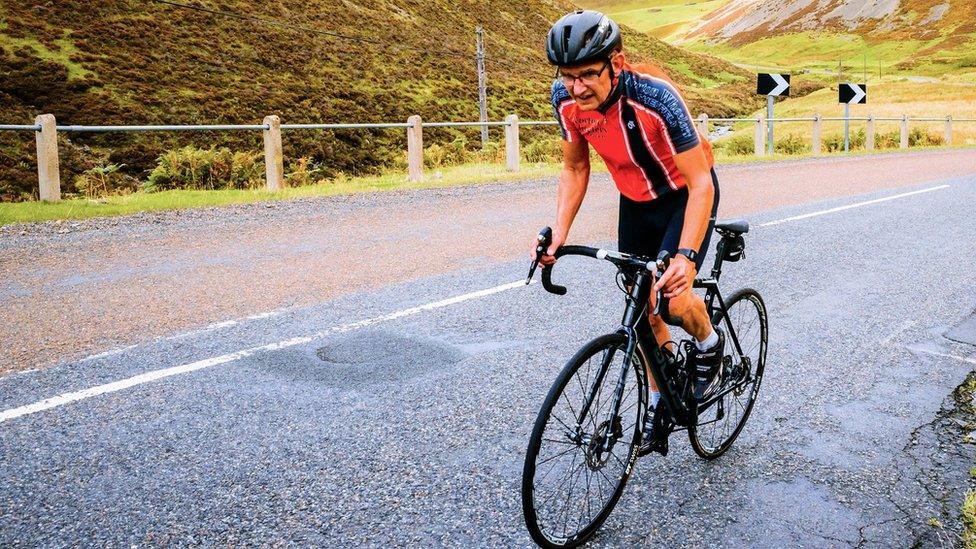
- Published25 August 2022
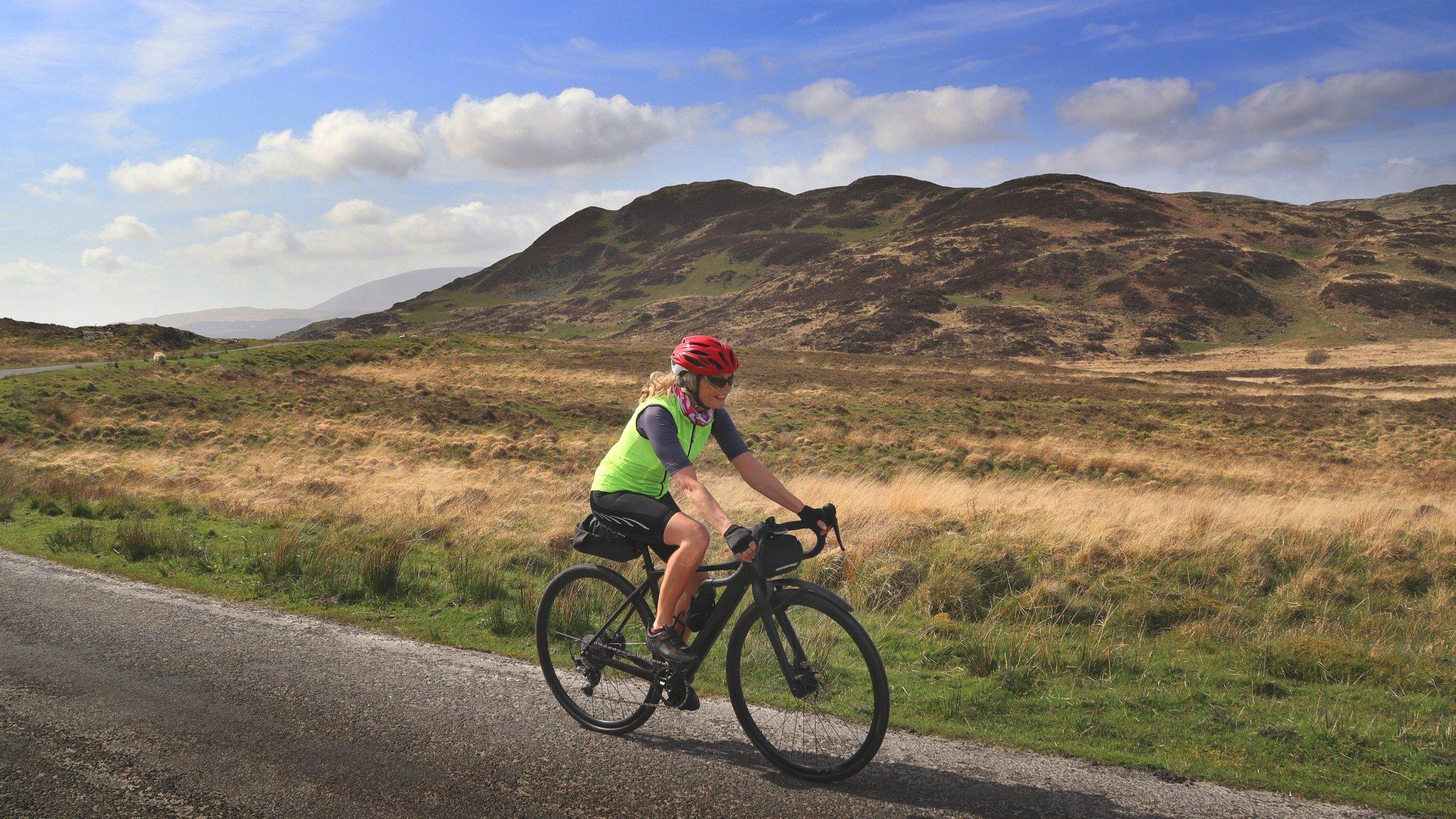
- Published2 September 2012
